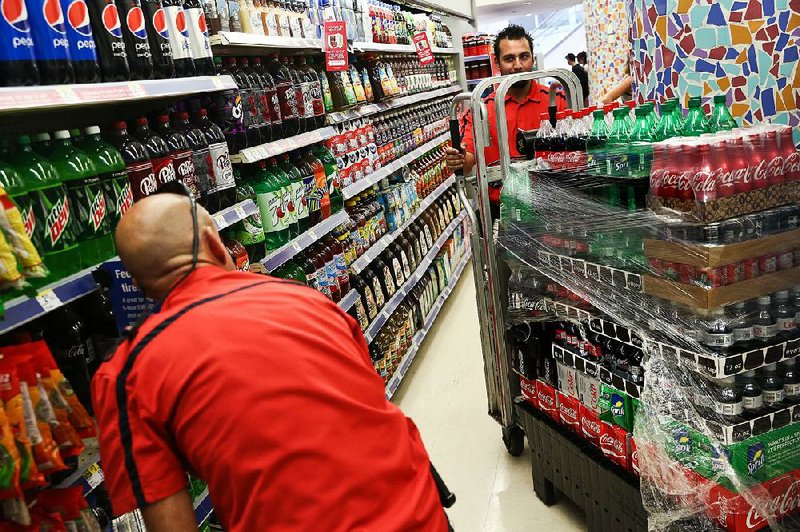Ben Kelly got hooked at Blockbuster.
It was July 2007, a time when leaving your home to pick up a movie was still conceivable, and his rental with accompanying soda allotted him 25 free Coca-Cola points. A fan of Sprite and Powerade, Kelly decided to give the beverage behemoth's loyalty program a shot. Over the past decade, the 29-year-old estimates, he amassed about 100,000 points, enough to redeem roughly $1,500 worth of Amazon.com gift cards based on today's exchange rate.
But Coca-Cola Co. will stop accepting codes on March 22, and on July 1, Kelly's remaining balance, and that of hundreds of thousands of other My Coke Rewards members, will become worthless. The program is getting an overhaul, the company says, but users are worried about what will become of one of the world's largest and most beloved loyalty programs.
Coke introduced the My Coke Rewards program in 2006, touting it as a way for fans to "benefit from their passion for the brand in a unique and special way," according to Katie Bayne, a senior vice president for Coca-Cola North America at the time. Four billion codes, most commonly printed inside the cap of a 20-oz. bottle, and prizes worth $50 million were slated to be released that year.
Three of the codes were worth a free music download. More lavish rewards, such as cash, March Madness tickets, a chance to go to the Oscars, and even a diamond ring, were also offered. Adidas, Delta, and Hilton partnered with the company to offer perks as well.
The day after the program was released, Coca-Cola stock ticked up.
Entering a code online at MCR.com was novel in 2006. But in 2017, it's a pain.
"People want to be able to completely handle any aspect of loyalty in the palm of their hand," said Bryan Leach, whose rewards app Ibotta has doled out $100 million in rebates since 2011. Entering a code, sending in a receipt, or cutting out a box top feels antiquated. Other companies have evolved or folded their loyalty programs.
General Mills' Box Tops for Education launched an app in September so users could quickly upload the codes and donate them to schools. PepsiCo Inc. replaced Pepsi Stuff, which required packaging to be mailed in, with Pepsi Pass, an app that allows phone cameras to scan the codes. Rebates moved the way of EBates.
Coca-Cola tried to adapt. The company released an app for the My Coke Rewards, but the alphanumeric codes had to be entered manually, a time-consuming task for users. An attempted revamp last year broke users into tiers based on how often they shared Coca-Cola-branded information on their social media accounts. The program was met with user frustration and was rolled back.
Asked whether the revamped program will allow codes to be scanned, Coca-Cola said it would be announcing new digital engagement platforms later this year.
Bottle caps and paper packaging codes, however, are not going away. Customers can still enter them on the website after it relaunches July 1 as Coke.com, Coca-Cola said.
Coca-Cola spent $4 billion on advertising last year. In the past, their advertising has included everything from traditional billboards and television spots to guerrilla stunts such as "happiness" vending machines. The company has "really embraced digital marketing," said Bloomberg Intelligence senior consumer products analyst Kenneth Shea. But "they have a lot on their plate right now. Probably No. 1 for them is to transform this company."
Coca-Cola is revamping its bottling operation, a massive reorganization that it hopes will reduce staff by 68 percent from 2015 and increase profit margins. "That's where they're spending all their time right now," Shea said. The plight of the My Coke Rewards members isn't a huge priority, though the company said the changes are unrelated to bottling.
"As our brand portfolio evolves, the company is evolving its loyalty program to ensure it continues to bring innovative and valuable experiences to loyal consumers across all brands," said Ellen Duncan, Coca-Cola North America's director of digital platforms.
Included in that portfolio might be a beverage without a traditional bottle cap: beverage giants will soon bid for Vita Coco, which sells nearly $1 billion of coconut products, such as milk and oil.
For now, Jessica Stephens' life is still full of bottle caps. She's entering as many as she can before My Coke Rewards comes to a screeching halt. Coca-Cola limits users to 75 points a week. The points can be redeemed through June.
"Panic," she says with a laugh when asked what her reaction was to finding out the program would be coming to an end. "I wish they would've handled it better."
A scan of My Coke Reward's social media pages echoes Stephens' alarm. Users primarily expressed frustration with the point limit and insecurity about the quality of future rewards.
Some users criticized Coca-Cola for being secretive about the rewards aspect of the forthcoming loyalty program. Gift cards are the preferred rewards among users of the current program interviewed by Bloomberg. Kelly redeemed his points for Nike gift cards to buy a pair of sneakers each year, and Stephens is partial to Amazon gift cards. After the company announced the program was changing, some gift cards sold out on the My Coke Rewards website.
The new rewards, the company said, "will be brand and experienced based." Gift cards will continue to be a reward option, Duncan said. This should be welcome news.
Still, change of any kind always brings detractors.
"This program just keeps going downhill every time they change things to make it 'better,'" Kristi LeShane wrote on Facebook. "I think it's time to finally kick my Diet Coke addiction!"
SundayMonday Business on 02/19/2017
